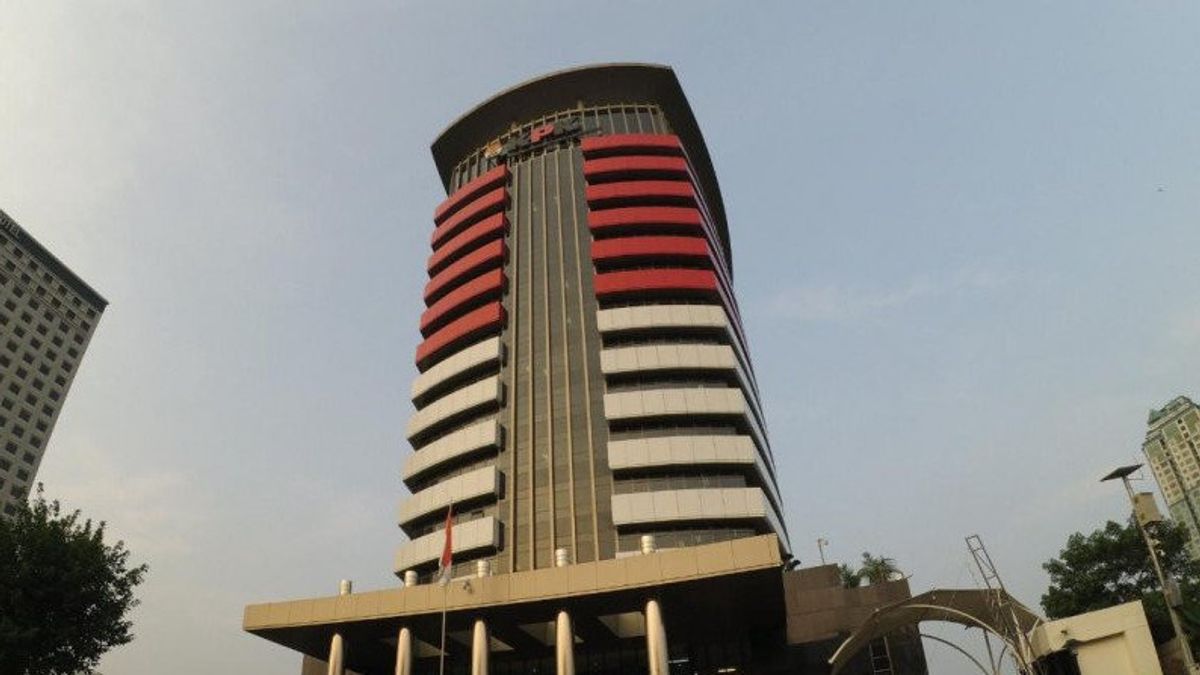JAKARTA - The Kompas Research and Development Survey captured 48.2 percent of the public who were dissatisfied with the performance of the Corruption Eradication Commission (KPK). Based on this result, Indonesia Corruption Watch (ICW) considers that the urge to issue a KPK Perppu (Government Regulation in Lieu of Law) needs to be voiced again because it is relevant to current conditions.
The Kompas Research and Development survey revealed that 48.2 percent of the public were dissatisfied with the performance of the anti-corruption commission. This dissatisfaction arose for several reasons.
As many as 34.3 percent of respondents said that this dissatisfaction arose because the performance of the KPK Supervisory Board was not optimal; 26.7 percent due to a decrease in the number of OTT; 18.7 percent cited a lot of controversy; and 11.1 percent were dissatisfied with the leadership's image.
The survey was conducted on February 22-24 which was attended by 506 respondents. The collection of opinions by telephone and samples were determined randomly from the respondents of the Kompas Research and Development panel according to the proportion of the population in each province.
The level of confidence for this survey is 95 percent, with no sample research being approximately 4.36 percent under conditions of simple random sampling.
Urging Perppu to be considered relevant
ICW researcher Kurnia Ramadhana admitted that she was not surprised by the survey results. Moreover, considering the current condition of the KPK.
Not only that, this anti-corruption activist assesses that the anti-corruption commission is on the brink. Not only that, he thinks the KPK is starting to fall into the wrong direction.
"ICW is not necessarily surprised to hear and read the results of the Libang Kompas opinion poll regarding the level of public satisfaction with the KPK's performance," said ICW researcher Kurnia Ramadhana in a written statement, Monday, March 21.
"The condition of the anti-corruption agency is really on the brink of even more likely to have fallen in the wrong direction. All of this is nothing but the fruit of the poor performance of all KPK Commissioners and members of the Supervisory Board," he added.
In addition, Kurnia assesses that there have actually been many criticisms that have been submitted by the public to the KPK but unfortunately they have not been heeded. In fact, instead of carrying out criticism, the KPK leadership is now engrossed in the controversy.
Furthermore, Kurnia assesses the public's perception of the anti-corruption commission that it will be difficult to save. "Simply put, how can the public believe in the work of the KPK if only two of its leaders have been proven to have violated the code of ethics," said Kurnia. The change of KPK leadership is to mitigate problematic people from entering and being elected as commissioners," he said.
In addition, ICW considers it important for all parties to re-launch the issuance of the KPK Perppu. The goal is that the Corruption Eradication Commission Law Number 19 of 2019 is revised back to normal. "The Perppu's insistence on returning the KPK Law to the way it was before has become relevant again," said Kurnia. Meanwhile, the KPK has responded to the results of this survey.
Acting KPK Spokesperson for the Enforcement Midwife Ali Fikri appreciated but also reminded that the eradication of corruption could not actually be measured by the number of hand arrest operations (OTT) carried out.
"The KPK is also important in providing additional public understanding that the performance achievement of eradicating corruption is not only a matter of how many corruption actors are caught red-handed by the KPK," Ali said in a written statement.
Ali said an assessment from the survey was needed to make improvements. "Moreover, the public is the main beneficiary stakeholder of the KPK's work," he stressed.
"However, the success of eradicating corruption is also important, measured by how well we are able to cover corruption-prone points and how well we can make people aware not to commit corruption," Ali added.
He also emphasized that his institution is now not only focused on enforcement or prevention but also education. In fact, the KPK has consistently measured the achievements of eradicating corruption, one of which is through the Integrity Assessment Survey (SPI).
From the results of this SPI, continued Ali, many instrument recommendations for improvement were produced. Thus, this survey can have a systemic impact on efforts to prevent corruption in an implementation that can be applied by every ministry, institution, regional government, and other agencies being measured.
"We should be optimistic about the performance of eradicating corruption in Indonesia," he concluded.
The English, Chinese, Japanese, Arabic, and French versions are automatically generated by the AI. So there may still be inaccuracies in translating, please always see Indonesian as our main language. (system supported by DigitalSiber.id)









